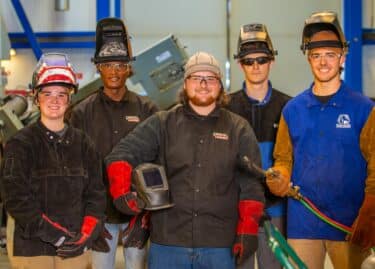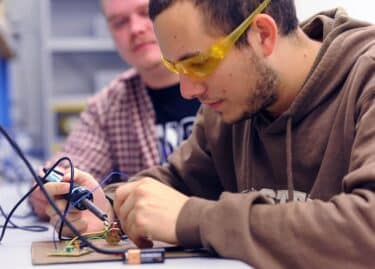A recent blog post by Phil Sletten, Research Director for the New Hampshire Fiscal Policy Institute (NHFPI), drew attention to the myriad of financial measures by which New Hampshire’s support for public higher education lags that of other states. That post also identified some of the adverse consequences of this funding that include barriers to pursuing postsecondary education for students in New Hampshire, the mass exodus of New Hampshire’s college-bound high school graduates who enroll at colleges and universities in other states (potentially remaining out of state to begin their careers), and the significant student loan debt that this state’s graduates carry.
All of those are important concerns and have real consequences for New Hampshire’s students and their families and for the state’s workforce, and there is no doubt that infusion of additional support from the state would be helpful; however, as sensible as it is for NHFPI to focus on the financial aspects of postsecondary education in New Hampshire, it’s important to note that this is only part of the story. Over the past decade, and primarily as a result of support from the State of New Hampshire, the tuition rate for New Hampshire residents that the Community College System of New Hampshire (CCSNH) charges has increased by less than 2.5%. That’s not 2.5% annually, but 2.5% total, over more than a decade. Accounting for inflation, even during the period of low inflation that existed before the current surge, the inflation-adjusted cost of CCSNH’s tuition for New Hampshire residents has actually fallen by about 25%, and across that span of time, students have benefited from the opportunities that CCSNH offers throughout the state, and in turn, the state and its communities have benefited from the work of our graduates in a wide range of enterprises that each of us undoubtedly relies upon regularly, from healthcare to technology to skilled trades to business services and more.
Over the past decade, CCSNH has graduated more than 3,400 students from our Nursing programs, along with more than 500 Medical Assistants, more than 440 Radiologic Technicians, and nearly 400 Dental Hygienists to support New Hampshire’s healthcare workforce in delivering care to those who reside in the Granite State. Across that same period of time, we have also conferred more than 1,500 degrees and certificates in Education, including more than 1,000 in Early Childhood Education. We have also prepared more than 1,000 students to enter the workforce through various engineering, advanced manufacturing and robotics programs, along with another 800 who were trained as automotive technicians, and nearly 1,000 more who have been certificated for careers in welding. Coupled with more than 3,000 graduates of our liberal arts transfer programs and more than 2,000 in various business programs, with support from the State of New Hampshire, we continue to make postsecondary education accessible and as affordable as we can, providing opportunities for New Hampshire’s students that align with the needs of New Hampshire’s communities.
We know that affordability of postsecondary education will be an increasingly important issue in the future, and as Mr. Sletten points out, relative to national benchmarks, New Hampshire is not in a favorable position, but opportunities do exist for students in this state. Currently, CCSNH partners with approximately one hundred high schools to offer courses for dual high school/college credit at low cost (or no cost) to about 8,000 students each year, offers affordable access to hundreds more through our on-campus Early College program, and, in fact, free access through SPARK Academy at Manchester Community College and through the New Hampshire Career Academy Charter School. Additionally, through apprenticeships and short-term certificate programs, we create on ramps and bridges for people, particularly working adults, trying to enter or transition in the workforce.
Notwithstanding the funding metrics that do present challenges for New Hampshire’s public colleges and universities, state support has played an important role in keeping opportunities within reach for New Hampshire students and families, which is why we make the strongest case we can each budget cycle for state support. We appreciate the attention of the NHFPI to the costs of higher education, and for the role it plays in strong communities and quality of life in the Granite State. These are important topics to keep at the forefront of public policy and planning as our nation faces increasingly challenging economic conditions.
Dr. Mark Rubinstein is chancellor of the Community College System of New Hampshire.



